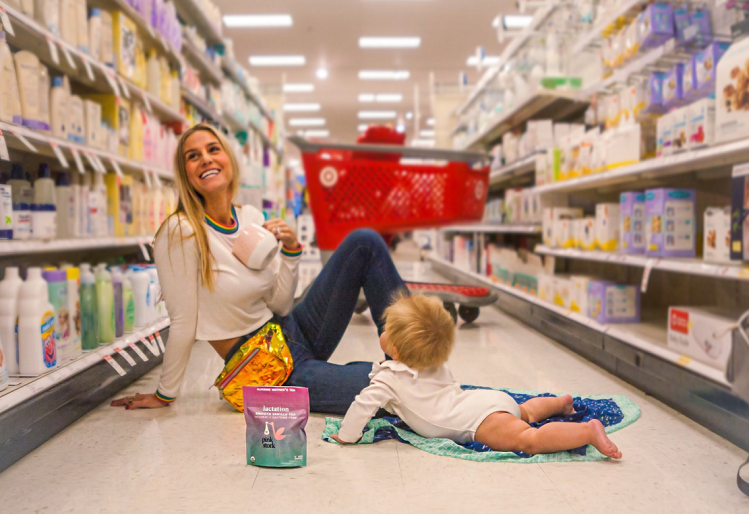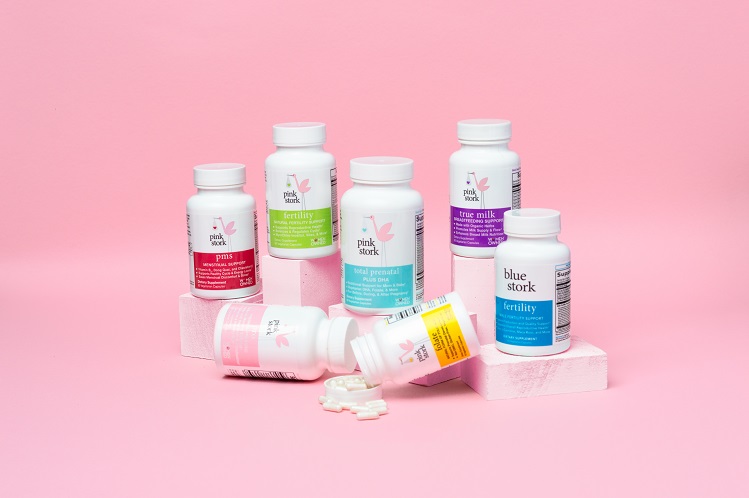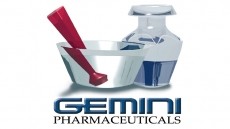Editor's Spotlight
How debilitating morning sickness inspired one woman to build an empire of women’s health products

Upchurch started Pink Stork, which began with a line of products for morning sickness in 2015. It has since grown to become an empire of women’s health products with teas, prenatal supplements, pre-menstrual support lozenges, and more.
Her products can now be found in national retailers such as CVS, Target, and Walmart. In 2018, the brand got the coveted Amazon’s Choice designation on the ecommerce giant’s platform, which signals that a brand is more frequently bought than other brands appearing with the same search term. It also tells buyers that the product has high ratings and a low return rate from past buyers.
While there are many products geared towards women’s health in the supplement space, whole brands revolving around women’s health is surprisingly scarce, Upchurch told us.
“I think when it comes to women in this phase in their life, especially when you’re going through a struggle that relates to pregnancy, you really want to be able to trust a brand that can relate to you and empathize with you at a personal level,” she said.
Trust and empathy as a differentiator
Most prenatal and other women’s health supplements tend to come from large supplement companies with a portfolio of products in diverse categories, Upchurch observed. Being a specialist brand in a niche category helps build trust and credibility.
“At least, based on my own personal experience,” she added.
For Upchurch’s first pregnancy in 2009, she was diagnosed with hyperemesis gravidarum, which the Mayo Clinic describes as a rare case when morning sickness is so severe that it can lead to constant vomiting and ultimately dehydration.
Women with hyperemesis gravidarum often must be hospitalized to ensure stability and receive intravenous fluids.
For her second and third pregnancies between 2010 and 2013, she had the same issues.
“With my struggles, I really learned to listen to my body and watch what I put in my body,” she said.
“When I first started looking at the market, there wasn’t a company that was geared specifically for women during pregnancy.”
That’s what got her entrepreneurial juices flowing. “Usually, when a woman is dealing with something like morning sickness, she’s searching high and low [online],” she said.
Upchurch wanted to be part of the comfort she was seeking during her own troubled pregnancies for other women. Starting as an online-only company, she put herself up front as the face of her brand and shared her story, helping create that trust and credibility she believes makes her company different.
Formulating the products
The product formulations were developed by manufacturing partner Lief Labs, a California-based contract manufacturer and product development lab.
At its helm is Adel Villalobos, who founded the lab in 2008. He described his business as “very end-consumer-centric.”
“We’re very transparent, we develop products together with our client and we show them how we put a formula together,” he said. While it has been the norm in the contract manufacturing space to not share details of a formulation to the brand-owner clients, “we let our clients have complete visibility in their formulations,” he said.
Villalobos’ background is in nutritional biochemistry, specifically vitamin and minerals metabolism. Before starting the lab, he worked in product development for nutraceuticals companies, where he first started learning about herbal monographs.
It was Lief Labs’ expertise that helped Pink Stork’s product pipeline keep flowing and evolving.
A mutual industry acquaintance introduced the Upchurches to Villalobos in 2014. “Pink Stork has a very passionate CEO with an incredible vision—she empowers women to understand the importance of nutrition as part of their overall wellbeing,” he said.
Competitive landscape, and what comes next
There are some other companies that Upchurch considers to be in Pink Stork’s competitive space. There’s Premama, which started as a prenatal powder and gummy brand and has since grown to include digestive support chews and energy boosters. In 2017, Premama closed Series A and B financing totaling $4.5 million.
There’s also the Jessica Alba-backed personal care and cleaning specialist The Honest Company, which has forayed into pre- and post-natal supplements.
Part of what keeps Upchurch up at night is thinking about how to grow her company in a competitive space where competing brands have much bigger budgets.
But the landscape has changed. Millennials, now the largest age group in the US, are starting to have more kids, and these digitally-native parents-to-be look online to help them deal with health issues or with new territory such as a first pregnancy.
“When you think of morning sickness and what our grandmothers dealt with, the resources available to them were so different than what’s available to us today,” Upchurch said.
“More competition in the space will bring more attention to this niche category.” And in this niche category, Pink Stork has a first-mover advantage.



















